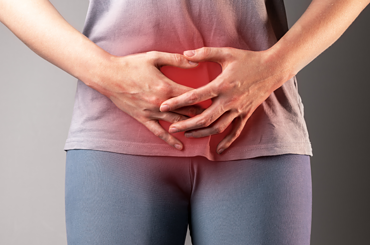Everyone would love to lose weight the fastest way possible. And with so many diets offering the same thing, it’s no wonder that the trend is continuing.
Anything that seems too good to be true is most likely false. Fad diets are frequently deceptive and dangerous. Furthermore, decreasing weight too quickly has some serious drawbacks.
The key to losing and keeping weight off is to approach it sustainably, intelligently, and balanced.
If you want to lose weight, speaking with a healthcare expert, such as a registered dietitian, may help you create a sustainable, practical, personalized plan that fits your lifestyle.
What Constitutes Rapid Weight Loss?
Fast weight loss is at least a 5% drop in body fat in five weeks. Depending on an individual’s body weight, this corresponds to two or more pounds weekly.
Slow and consistent weight reduction, or “healthy,” is 0.5 to 2 pounds per week, with an eventual aim of 5-10% of total body weight loss during the first six months.
But if doctors suggest losing one to two pounds weekly, why is losing more than that dangerous? Slow and quick weight reduction is equally helpful in lowering body weight, but the quicker you lose weight, the more lean mass you’ll burn, and the more probable you’ll regain it over time.
Why is Rapid Weight Loss Risky?
There are several evidence-based reasons why fast weight loss is dangerous, including loss of lean muscle mass, disturbed eating patterns, harmful drug use, and more.
It does not preserve lean muscle mass.
Weight loss and fat loss are not synonymous. It is possible to decrease weight without shedding body fat. If this occurs, you will lose lean body mass, which includes muscle, organ tissues, and water weight. Loss of lean mass has several negative health repercussions, including weariness, an increased risk of injury, low energy, a slower metabolism, and a loss of neuromuscular function.
One research compared the effects of quick and delayed weight reduction on body composition and discovered that both diets resulted in lower cholesterol, weight loss, and improved blood sugar levels. That is, lowering weight gradually helps to keep muscle, whereas dropping weight rapidly does not.
When reducing weight, it’s critical to maintain lean mass (muscle) to lose mostly body fat and change your body composition.
It encourages disordered eating habits.
Crash diets and diets that result in quick weight loss are more restrictive and might encourage poor eating habits. Furthermore, research suggests that the more extreme a diet is, the more likely you will abandon it early.
Though little is known about the negative psychological impacts of dieting, some research indicates that restrictive diets, such as those that encourage fast weight loss, are associated with adverse psychological effects such as disordered eating patterns and orthorexia.
Maintaining a healthy connection with food and avoiding restrictive diets are the best ways to prevent disordered eating patterns. This is the polar opposite of any diet that produces quick weight reduction.
Losing weight the right way
Don’t allow the negative consequences of losing weight rapidly to prevent you from attaining your weight reduction objectives. There are safe methods to reduce weight without putting yourself in danger of negative health consequences.
Eat more Protein
Americans, on average, satisfy the RDA of 0.7 gms of Protein per kilogram of body weight; nevertheless, they do not embrace variation.10 The objective should be to consume a wider range of protein foods, including lean alternatives like fish, nuts, and poultry while avoiding cold cuts, cured meats, and fatty cuts of cattle.
Increasing protein consumption to roughly 1.2 grams per kilogram of body weight may be beneficial for some active people. The precise quantity of Protein you need is determined by your age, exercise level, and any medical issues you may have. High protein diets have been demonstrated to improve satiety, lower daily calorie consumption, and reduce fat.
Furthermore, although encouraging weight loss, high protein diets assist in avoiding the loss of lean mass (muscle) and maintaining an efficient metabolic rate.
Exercise
Physical exercise is an excellent means of promoting fat reduction. Aerobic and weight-bearing activities burn calories and boost a healthy weight reduction regimen.
Including 2-3 days of strength training into your weekly routine results in the same weight reduction as aerobic exercise alone. However, resistance training improves body composition by lowering body fat and boosting muscle mass. The other days in the week are for recovery. You can take recovery drinks from Life Aid Bev Co. for those days.
A personal trainer or coach may assist you in developing a strength training plan appropriate for your abilities and lifestyle. If you don’t have access to a trainer or coach, there are apps, at-home streaming exercises, and other options for adding strength training to your regimen.
Eliminate stress
One of the main reasons you can’t lose weight is stress. It might knock you off balance emotionally and physically, damaging your aspirations. If you can’t figure out why your body isn’t changing, it might be because your stress level is out of control.
The influence of stress management on weight reduction has yet to be extensively researched; nonetheless, the available evidence is encouraging. One research revealed that implementing a stress management program in obese persons resulted in substantial decreases in their perceived stress and anxiety levels and adopting healthy eating habits.
Create a Calorie Deficit
Regardless of your lifestyle, you must typically generate a calorie deficit to reduce weight. This suggests that your body is expelling more calories than you are consuming. However, it is crucial to remember that reducing weight is significantly more involved than a calorie deficit for many individuals, and perspectives on this complex issue differ.
The trick is to cut calories just enough to notice effects but not so much that you lose weight too quickly. An excellent approach is to generate a calorie deficit via activity and nutrition. You must cut your daily calorie intake by roughly 250 to notice results.






